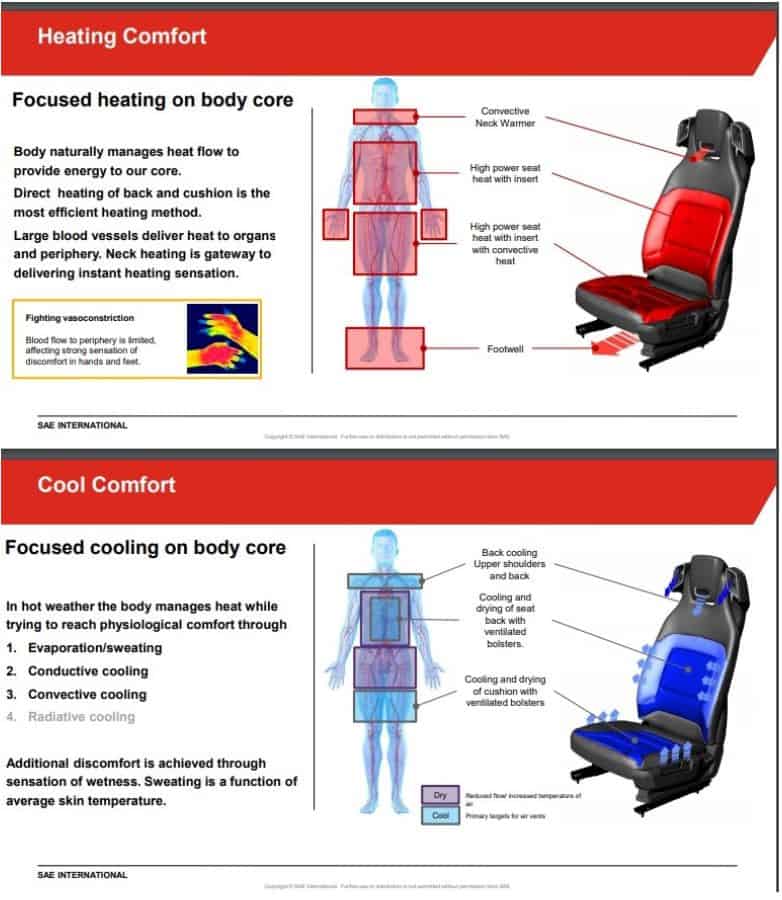A study by General Motors and Gentherm, a developer of thermal management and air conditioning technologies, has shown that a thermal comfort system called ‘ClimateSense’ significantly increases energy savings in electric cars and Autonomy.
According to the results of the study, this system achieves 50 to 69% energy savings with two active zones in a Chevrolet Bolt EV.
The secret, focus the air conditioning on the passenger and not the cabin
Under the premise that shared, electric and self-driving cars have put on the table the need to redesign the cabins, the system called ‘ClimateSense’ is responsible for taking a new approach to air conditioning and thermal management.
How? Gentherm has developed a seat-focused air conditioning system, right in the area where the occupant needs thermal management, avoiding cooling or heating areas of the vehicle that are not needed. And it is that the human body does not have a uniform temperature.

The system solution consists of advanced methods of thermal supply, integrated electronics, embedded software and a person-centred control algorithm based on thermophysiology.
Thus, the seats have different temperatures for the neck, knees, or feet and are designed from the thermal management of the human body itself.
The collaboration with General Motors also used a new human-centred comfort measurement methodology to measure passenger comfort and the performance of the heating and cooling system in the Chevrolet Bolt that was used as a test.
The most significant results reached in the study are the following:
- In a scenario with an outside temperature of -7º C, ClimateSense promises between 50 and 69% of energy savings applied to two active zones, improving the general comfort of the occupant.
- In a second scenario, with warm weather, energy savings reached 34% and also improving the perception of general comfort for the occupants.
An interesting study that could open the doors to intelligent management of the air conditioning system of cars if it is proven viable on a large scale.